Curb Your Water Waste: Simple Tips From The Home Depot and EPA for Saving Water Outdoors
Published 06-22-23
Submitted by The Home Depot
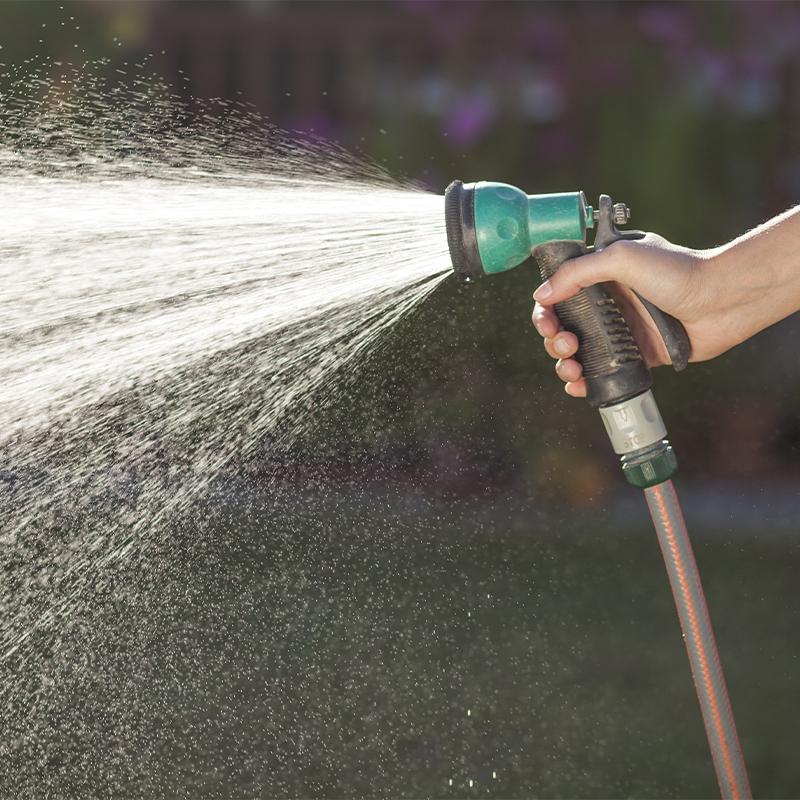
Originally published on Built From Scratch
Summer is officially here. Rising temperatures often coincide with rising outdoor water use, primarily due to an increase in lawn and landscape watering. Experts estimate that 50 percent of the water we use outdoors is wasted due to evaporation, wind, or inefficient irrigation methods and systems. Use less water and promote healthy landscapes by sharing facts about overwatering and tips for reducing outdoor water use.
Simple Tips for Saving Water Outdoors
As much as 50% of the water we use outdoors is wasted from inefficient watering methods and systems. Curb your water waste!
Homes with automatic irrigation systems can use about 50 percent more water outdoors than those without them. Check your summertime water bill—how does your warmer weather water use compare to winter months? Here are some tips for keeping water use under control:
- Timing is everything: Know how much water your landscape actually needs before you set your sprinkler. Your local utility can offer recommendations for how much water certain plants need in your region and the best times to water. Generally, it’s best to water lawns and landscapes in the early morning and late evening because significant amounts of water can be lost due to evaporation during the heat of the day.
- Look for the label: If your system uses a clock timer, consider upgrading to a WaterSense-labeled controller. WaterSense-labeled irrigation controllers either use local weather data or the level of moisture in the soil to determine whether the landscape needs water, which reduces waste while focusing on plant health.
- Go with a pro: Contractors certified through a WaterSense-labeled program can audit, install, or maintain home irrigation systems to ensure water isn’t wasted. Make sure you ask for credentials.
- Tune up your system: Inspect irrigation systems and check for leaks and broken or clogged sprinkler heads, and redirect sprinklers that are spraying the sidewalk, street, or driveway. Replace broken sprinkler heads with WaterSense-labeled models, which regulate water pressure at the nozzle to reduce misty, fogging, and overspray when a home’s water pressure is higher than recommended for your irrigation system.
- Play zone defense: When planting, assign areas of your landscape different hydrozones depending on sun/shade exposure, soil and plant types, and type of sprinklers, then adjust your irrigation system or watering schedule based on those zones’ specific needs. This helps you avoid overwatering some areas or underwatering others.
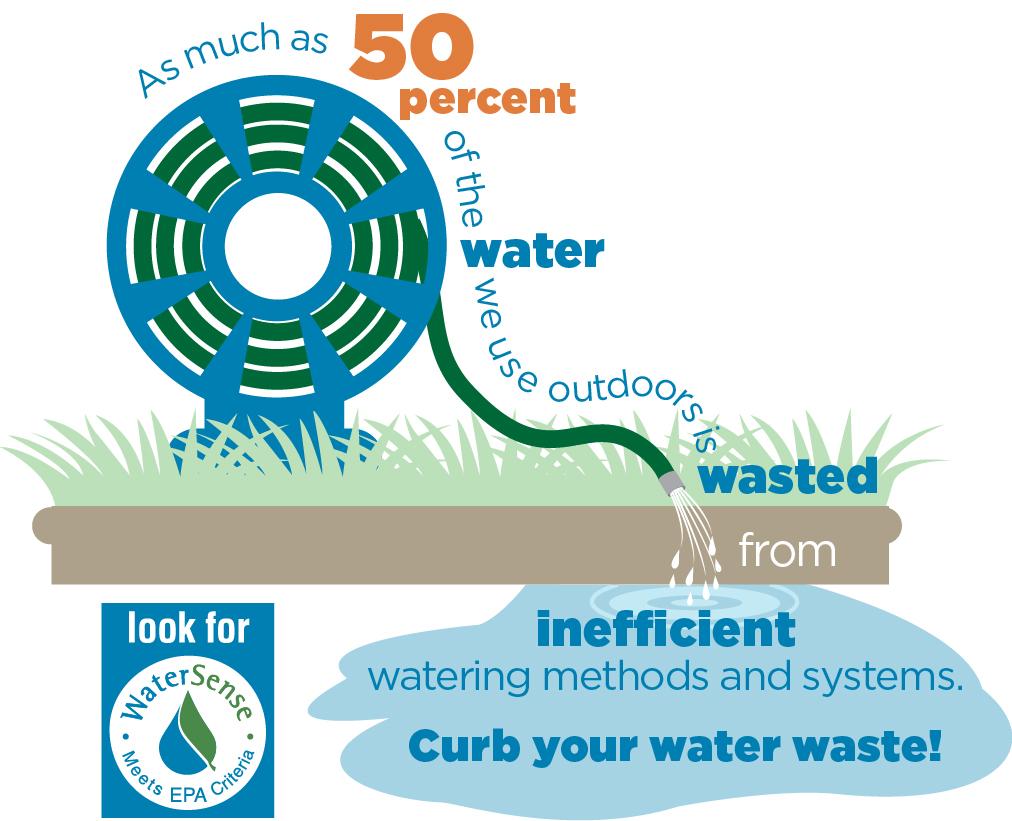
GET RIGHT TO THE ROOTS: Microirrigation provides water directly to plant roots at a lower flow rate, allowing the water to soak into the soil and reducing runoff. Consider hiring an irrigation professional to help design your microirrigation system.
Even if your home doesn’t have an irrigation system, there are several simple steps you can take to promote a healthier lawn and garden with less water this summer:
- Step on it: Grass doesn’t always need water just because it’s hot out. Step on the lawn, and if the grass springs back, it doesn’t need water. An inexpensive soil moisture sensor can also show the amount of moisture at the plant’s roots and discourage overwatering.
- Leave it long: Raise your lawn mower blade. Longer grass promotes deeper root growth, resulting in a more drought-resistant lawn, reduced evaporation, and fewer weeds.
- Give your hose a break: Sweep driveways, sidewalks, and steps rather than hosing them off. And don’t forget to check for leaks at your spigot connection and tighten as necessary.
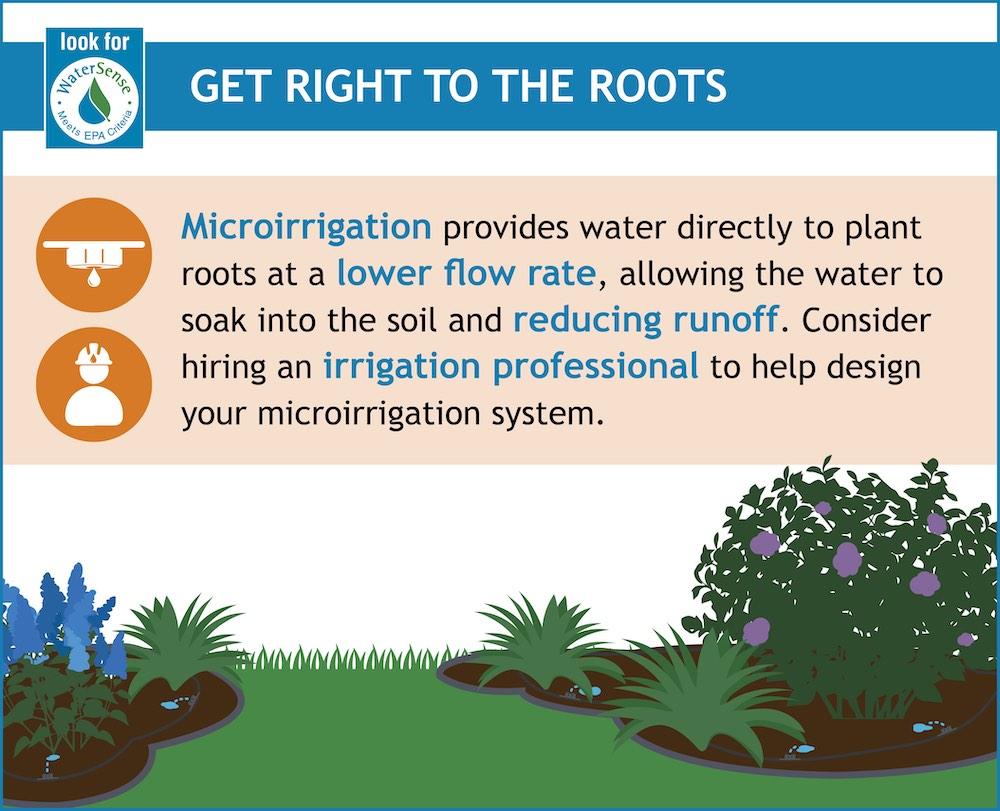
SAVE OUTDOORS WITH WATERSENSE: Combining a smart irrigation controller and spray sprinkler bodies that have earned the WaterSense label can save water, time, and money on water and sewer bills.
Click here to learn more about The Home Depot’s commitment to sustainability. For more tips on reducing outdoor water use, visit www.epa.gov/watersense/outdoors.
Keep up with all the latest Home Depot news! Subscribe to our bi-weekly news update and get the top Built from Scratch stories delivered straight to your inbox.
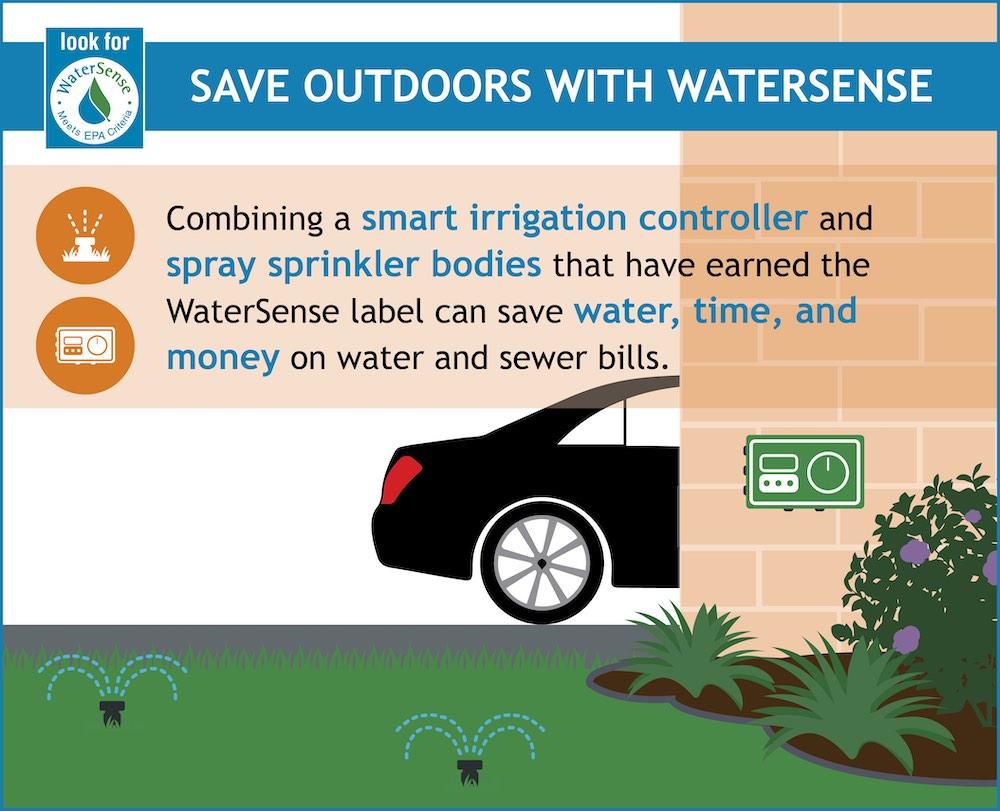
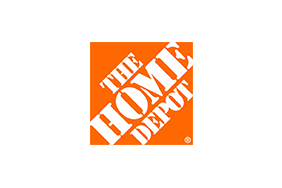
The Home Depot
The Home Depot
About The Home Depot
We are the world's largest home improvement specialty retailer with stores in all 50 states, the District of Columbia, Puerto Rico, U.S. Virgin Islands, 10 Canadian provinces, and Mexico.
More from The Home Depot

